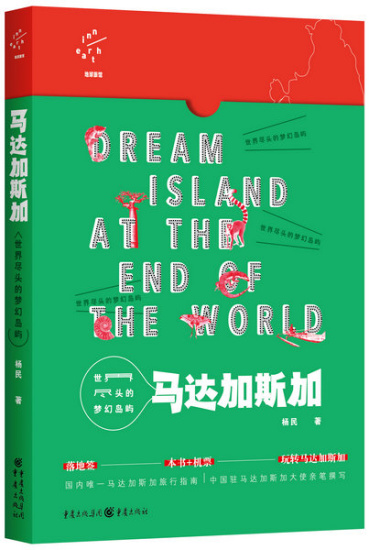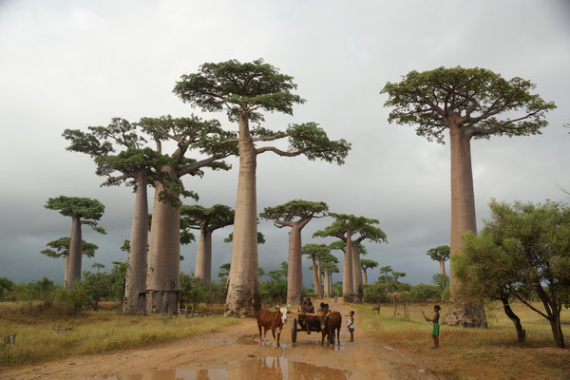
A long time ago, after an island had separated from a vast landmass, its plants and animals grew in relative isolation.
As a result, much of Madagascar's flora and fauna are rarely found elsewhere, making the world's fourth-largest island the perfect destination for travelers seeking to see nature in all its diversity.
The country gained global popularity, including in China, after Hollywood released the 2005 animated film, Madagascar.
Cheng Yuanyuan, from Beijing MooNbooks Co, is among the many Chinese who are attracted to the island located in the Indian Ocean off the African coast.
A fan of King Ringtail Julien XIII, the film's lemur character, Cheng thought about publishing a book about the island. But scarce material on the subject in China posed challenges for the project at the time.
A book has been released, since Cheng's team partnered with Yang Min, a former Chinese ambassador to Madagascar.
Madagascar: Dream Island at the End of the World was released by Chongqing Publishing House in February. The publisher called it the first such book about the country.
"Take the book and an air ticket, and you can start to explore the great island," says a statement from the publisher.
To Shu Xiaoyun, an editor at the publishing house, Yang seemed to be the right person to do the book.
"He has written several books and translated foreign literature. He loves and knows how to capture moments with the camera, and he understands that country well," Shu says.
The book is much more than a travel guide.
It contains a detailed introduction of different aspects of life in the country, with beautiful and precise accounts-be they on the baobab trees or the ring-tailed lemurs native to the island.
The book can shape an understanding of the island's culture, folk customs and traditions.

Yang writes that the baobab can provide a shelter for locals.
He also talks about the tradition of surnames on the island: They tend to be different, even within a family.
For example, Yang says he knows a girl whose surname is Rasoamianoka (an aristocrat enjoying a good life), while her mother's surname is Rasoamiadana (peaceful life of a "cute person") and her father's is Ralambomanana (lord who owns pigs).
Yang spent months taking photos, visiting residents and collecting facts and stories for the book.
It's also illustrated with some 100 photos he took.
In June, he held a photo exhibition in Antananarivo, Madagascar's capital, as a gift to honor its 55th year of independence.
He showcased 100 photos he took in the country, where he served as China's ambassador from 2013 to February.
Yang, born in 1958 in Shanghai, has been a diplomat for 40 years.
Madagascan officials attending the exhibition say Yang's photography shows he has "observant and considerate eyes behind the lens".
Shu, the editor, says the book is an authoritative and accurate account.
"The Chinese are enjoying a better life and becoming world travelers. Guided by the book, I expect Madagascar will become a hot destination for Chinese travelers, because it represents a poetic, mysterious and distant place," Shu says.
Madagascar offers visas on arrival for Chinese tourists. Its tourism bureau estimates about 10,000 Chinese visited in 2014 and expects more in the future.
"Yang's book is a gentle and warm hand that leads you in your discovery of the island, because it contains vivid details about its lifestyles and offers insights into a place that tourism guides frequently missed in the past," Shu says.


















































